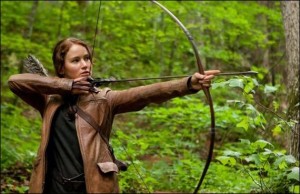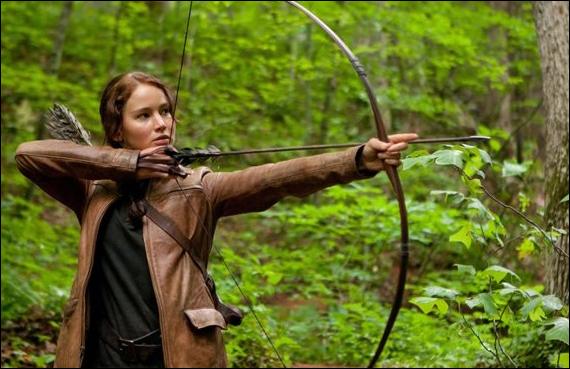Feminista: perspectives on modern feminism

Holy Hunger Games, Batman, everyone is talking about the series of books by Suzanne Collins!
Collins’ series includes three books: “The Hunger Games,” “Catching Fire” and “Mockingjay.”
With the cinematic adaptation of the first novel out next month, it is pretty much impossible to escape the exploding popularity of these novels.
This, naturally, leads people to compare these books to the infamous Twilight novels and movies.
Normally, that would really piss me off, just as it did when people decided that “Twilight” was in any way comparable to Harry Potter.
However, I think that anyone who has actually read the books in both series will admit that “The Hunger Games” is about as much like “Twilight” as I am like Rick Santorum.
Thematically, “Twilight” is about how important it is to have a gorgeous boyfriend and defending one’s virtue.
Alternatively, “The Hunger Games” is about survival, self awareness and generally being badass.
The main characters, both female, probably would not be friends if they actually existed.
Bella would probably be the first to die in the arena. I like to imagine it would be Katniss taking her out.
There are so many reasons why “Twilight” is just a bad piece of literature, and as a literature major, it is hard for me to ignore the poor quality of the writing.
However, what I’m concerned about here is the message that “Twilight” promotes.
I can sum it up in one word: virtue.
Not the good, modern kind either. I’m talking about the old, “my boyfriend is over a hundred years old, and I should probably stick to extremely rigid gender roles so he doesn’t leave me again like he did in “New Moon,” in which the sadness almost killed me” kind.
The Twilight series prize virginity and endorse following your boyfriend around like a lost puppy.
Certainly, it is not difficult to see Stephenie Meyer’s conservative Mormon ideology all over the plotline.
Alternatively, “The Hunger Games” is about something entirely different.
The main character in the novel, Katniss, is in no way concerned with finding a boyfriend (she actually never wants to get married or have children, huzzah!), and is instead busy providing for her flighty mother and younger sister after the death of her father.
She hunts. She does business in her local black market. She protects the people she loves, all without a dominant male figure in her life.
Katniss embodies the characteristics that we ought to be teaching our young women. She is self sufficient, persistent, loyal, caring and totally fierce.
Unlike the idolized Bella Swan, Katniss Everdeen is one hell of a heroine.
But wait, the Hunger Games series is also a collective love story. Yes, even strong women can fall in love!
However, unlike Bella, Katniss chooses to get to know herself before she makes the jump into a relationship. She is not some girl with no personality that mysteriously gets lots of dudes to like her. She’s attractive because she is genuine and true, perhaps to a fault. Katniss deserves to be admired.
Collins’ series teaches girls that they don’t need a man to provide for them and that being the best version of yourself that you can be without apology has merit.
Sacrifice in the name of love is one thing, but losing one’s sense of self in some stupid love triangle is a ridiculous thing to promote to young women.
So, let’s take a page out of Katniss’ book.
As women, and as human beings in general, we should strive to be the strongest people we can. We may never find ourselves fighting to the death in the Hunger Games, but we can persevere in the way that the characters do: by staying true to ourselves, by fighting to protect what is important and by recognizing that independence is a far greater virtue than innocence.
May the odds be ever in your favor.

